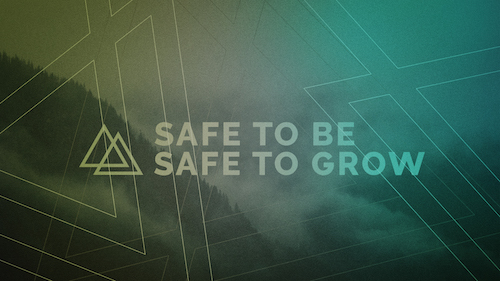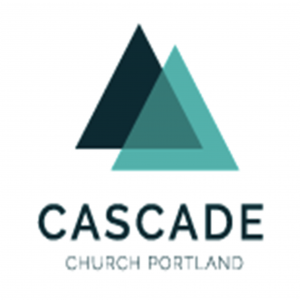
- Podcast Features
-
Monetization
-
Ads Marketplace
Join Ads Marketplace to earn through podcast sponsorships.
-
PodAds
Manage your ads with dynamic ad insertion capability.
-
Apple Podcasts Subscriptions Integration
Monetize with Apple Podcasts Subscriptions via Podbean.
-
Live Streaming
Earn rewards and recurring income from Fan Club membership.
-
Ads Marketplace
- Podbean App
-
Help and Support
-
Help Center
Get the answers and support you need.
-
Podbean Academy
Resources and guides to launch, grow, and monetize podcast.
-
Podbean Blog
Stay updated with the latest podcasting tips and trends.
-
What’s New
Check out our newest and recently released features!
-
Podcasting Smarter
Podcast interviews, best practices, and helpful tips.
-
Help Center
-
Popular Topics
-
How to Start a Podcast
The step-by-step guide to start your own podcast.
-
How to Start a Live Podcast
Create the best live podcast and engage your audience.
-
How to Monetize a Podcast
Tips on making the decision to monetize your podcast.
-
How to Promote Your Podcast
The best ways to get more eyes and ears on your podcast.
-
Podcast Advertising 101
Everything you need to know about podcast advertising.
-
Mobile Podcast Recording Guide
The ultimate guide to recording a podcast on your phone.
-
How to Use Group Recording
Steps to set up and use group recording in the Podbean app.
-
How to Start a Podcast
-
Podcasting
- Podcast Features
-
Monetization
-
Ads Marketplace
Join Ads Marketplace to earn through podcast sponsorships.
-
PodAds
Manage your ads with dynamic ad insertion capability.
-
Apple Podcasts Subscriptions Integration
Monetize with Apple Podcasts Subscriptions via Podbean.
-
Live Streaming
Earn rewards and recurring income from Fan Club membership.
-
Ads Marketplace
- Podbean App
- Advertisers
- Enterprise
- Pricing
-
Resources
-
Help and Support
-
Help Center
Get the answers and support you need.
-
Podbean Academy
Resources and guides to launch, grow, and monetize podcast.
-
Podbean Blog
Stay updated with the latest podcasting tips and trends.
-
What’s New
Check out our newest and recently released features!
-
Podcasting Smarter
Podcast interviews, best practices, and helpful tips.
-
Help Center
-
Popular Topics
-
How to Start a Podcast
The step-by-step guide to start your own podcast.
-
How to Start a Live Podcast
Create the best live podcast and engage your audience.
-
How to Monetize a Podcast
Tips on making the decision to monetize your podcast.
-
How to Promote Your Podcast
The best ways to get more eyes and ears on your podcast.
-
Podcast Advertising 101
Everything you need to know about podcast advertising.
-
Mobile Podcast Recording Guide
The ultimate guide to recording a podcast on your phone.
-
How to Use Group Recording
Steps to set up and use group recording in the Podbean app.
-
How to Start a Podcast
-
Help and Support
- Discover

When I was a very young child I was certain that there was much of the world that I didn't understand. How did plugging in a TV send me a picture of something that is going on hundreds of miles away? How did pouring a stinky liquid in our car make it go? Why was sleep necessary?
As I got older they forced me to ignore all of these awesome questions and focus on boring stuff like numbers, letters, words and sentences. This process kept building and laying claim to the majority of my life until I was 18 and graduating high school. At that stage I was fairly certain I didn't have much else to learn. I had given most of my time, effort and energy for 13 out of my 18 years on Earth to education. How much more could there be?
But as education continued something funny started to happen. I became more and more convinced that I didn't know anything. Any field of study that you're introduced to has so much depth and complexity. When you look at the number of fields of study that exist you start to realize that you know close to 0% of the information the world has to offer.
I was sure I knew nothing. I was sure I knew it all. Then I'm certain I don't know anything. (To prove that point, I just spent the last 2 minutes debating if the "i" in I'm should be capitalized and had to ask Sarah)
So, how do we react to a world where there is far more that we don't know than what we do know?
Curiosity feels like a good first step and I love this quote from S. Leonard Rubinstein.
"Curiosity is a willing, a proud, an eager confession of ignorance."
How great is that?! We get to drop out of the "know-it-all" game and embrace our ignorance as the engine to growth and maturity. This week we are looking at the third of our five core values in curiosity. We describe it as; We recognize there is more that we don't know about God and the world than what we do know. We lean into mystery with questions and openness to grow.
More Episodes
 2018-06-20
2018-06-20
 98
98
 2018-06-13
2018-06-13
 104
104
 2018-06-12
2018-06-12
 142
142
 2018-05-30
2018-05-30
 112
112
 2018-05-25
2018-05-25
 90
90
 2018-05-08
2018-05-08
 109
109
 2018-05-01
2018-05-01
 128
128
 2018-04-24
2018-04-24
 101
101
 2018-04-20
2018-04-20
 96
96
 2018-04-10
2018-04-10
 69
69
 2018-04-02
2018-04-02
 73
73
 2018-03-29
2018-03-29
 270
270
 2018-03-20
2018-03-20
 102
102
 2018-03-12
2018-03-12
 82
82
 2018-03-05
2018-03-05
 94
94
 2018-02-26
2018-02-26
 87
87
 2018-02-19
2018-02-19
 500
500
 2018-02-16
2018-02-16
 89
89
 2018-02-05
2018-02-05
 86
86
 2018-01-30
2018-01-30
 78
78
Create your
podcast in
minutes
- Full-featured podcast site
- Unlimited storage and bandwidth
- Comprehensive podcast stats
- Distribute to Apple Podcasts, Spotify, and more
- Make money with your podcast
It is Free
- Privacy Policy
- Cookie Policy
- Terms of Use
- Consent Preferences
- Copyright © 2015-2025 Podbean.com




